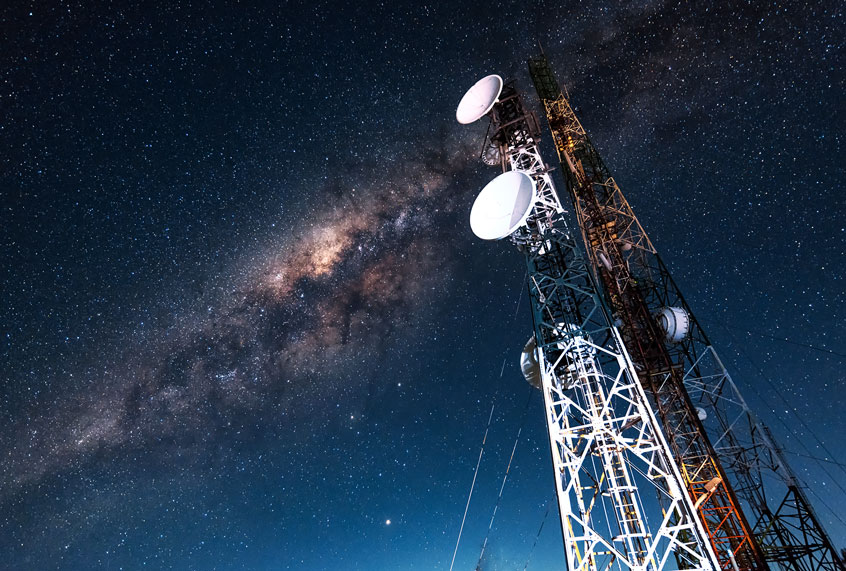A new radio wave burst in space is capturing scientists’ attention because of what it may tell us about its source.
Known as fast radio bursts (FRBs), these signals have been one of the most perplexing phenomenons in astrophysics because of the difficulty studying them. Since they only last a millisecond, telescopes often can’t focus on them in time to get a good look. FRBs have long been thought to come from some sort of astrophysics event occurring in a very distant galaxy. However, in late April a new burst that was detected by a mix of satellites could be the biggest clue we have yet about its source, which might be here in our own galaxy.
As reported by Nature, papers that have yet to be peer-reviewed are flooding the arXiv preprint server, analyzing a burst from a magnetar star in the Milky Way known as SGR 1935+2154.
“The new evidence for a fast radio burst from a magnetar in the Milky Way galaxy is groundbreaking,” Avi Loeb, chair of Harvard’s astronomy department, told Salon via email.
Astrophysicists have long suspected a magnetar, a type of neutron star with an extremely powerful magnetic field, to be the source of FRBs, but they haven’t had evidence to show a link — until now.
“I wouldn’t say it’s the nail in the coffin that we’ve figured out that fast radio bursts come from magnetars,” Emily Petroff, an astronomer at the University of Amsterdam in the Netherlands, told Nature. “But it’s by far the most promising piece of evidence that we’ve found.”
On April 27, various satellites detected γ-rays streaming from SGR 1935+2154, which is one of about 30 magnestars in our galaxy. The next day, the Canadian Hydrogen Intensity Mapping Experiment (CHIME) radio telescope detected a massive radio flash from the area in the sky where the magnetar is located.
“Young magnetars were conjectured as the most likely cosmological sources of FRBs,” Loeb explained. “This is because FRBs are similar in duration (a thousandth of a second) but ten billion times brighter than the pulses from magnetized Galactic neutron stars, called pulsars.”
Loeb added that this new discovery made in late April has shown that “magnetars can produce bright flashes of radio waves, albeit with a power that is still a thousand times weaker than the sources of FRBs.”
In other words, he said, this discovery is the “smoking gun” that is certainly a strong link of evidence, “but too small to explain the crime scene.”
Because of their very nature and how they move, Nature supports the theory that magnestars could be the source of FRBs.
“Because magnetars are spinning quickly and have powerful magnetic fields, they have huge reservoirs of energy that can produce outbursts,” Alexandra Witze writes in Nature. “One idea about the source of these outbursts is that something happening inside the magnetar — such as a ‘starquake,’ analogous to an earthquake — could crack its surface and release energy.
Witze adds, “Another possibility is that the highly magnetized environment around the magnetar somehow produces the burst.”
FRBs were first spotted in 2007, and have been previously thought to be random pulses, but according to a paper published on the server arXiv in late January, researchers studying FRBs discovered that the one known as FRB 180916.J0158+65 is a “repeater,” meaning it emits bursts repeatedly and follows a regular pattern.
Loeb told Salon it’s possible that there are problems in “accounting for the abundant population of cosmological FRB sources with a population of magnetar flashes.”
“It is possible that the reservoir of FRBs is a mixed bag. In other words, there are different populations of sources, some of which are like the one seen in our galaxy,” he said.
Though our civilization communicates frequently with radio waves, these mysterious signals are probably not coming from an alien civilization, as Salon has previously reported.
“It is unlikely that all FRBs are from alien civilizations due to the power requirements at cosmological distances, but possible,” Loeb previously told Salon. “We worked out the numbers in a paper with my postdoc, Manasvi Lingam, two years ago.”


